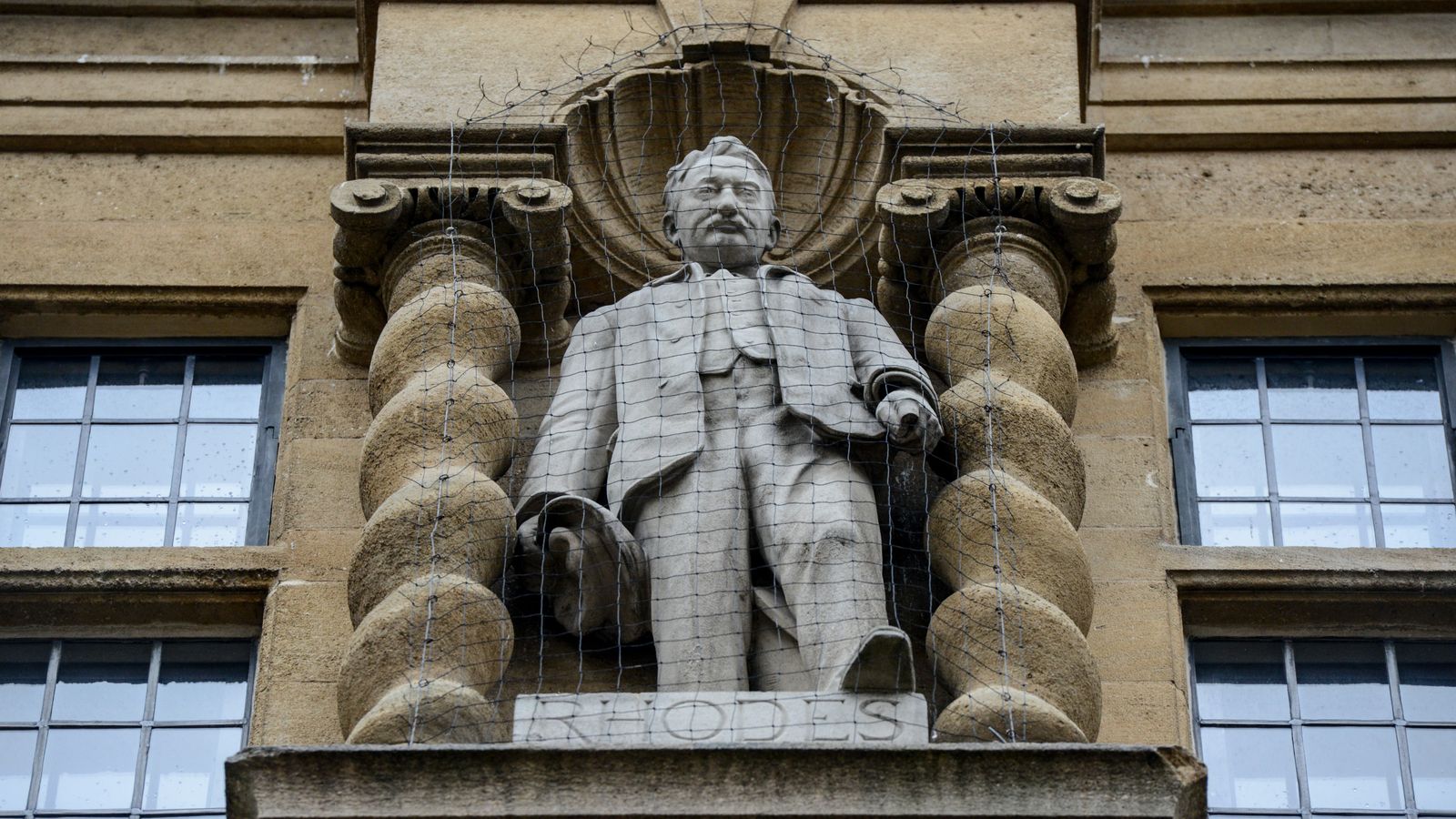A controversial statue of colonialist Cecil Rhodes is to be left in place at an Oxford college because of the difficulties associated with removing it, the governing body has said.
Oxford University’s Oriel College, whose officials voted last June to remove the statue of the Victorian imperialist, have said the “regulatory and financial challenges” presented by its removal mean it will stay in place.
The move will anger campaigners who have long wanted it taken down, with their cause having been boosted last summer by similar efforts around the world to remove monuments to colonial figures as the Black Lives Matter movement went global.
Rhodes made a fortune in the late 19th century from gold and diamond mines in which miners laboured in brutal conditions, and was a central figure in Britain’s colonial project in southern Africa.
College authorities set up an independent inquiry to examine Rhodes’ legacy last June and most of that commission’s members supported the college’s original wish to remove the statue.
But Oriel College said in a statement on Thursday: “In light of the considerable obstacles to removal, Oriel’s governing body has decided not to begin the legal process for relocation of the memorials.
“The Commission backed the College’s original wish (made in June 2020 and reaffirmed again by the College yesterday), to remove the statue, whilst acknowledging the complex challenges and costs presented by its removal in terms of heritage and planning consent.
“The governing body has carefully considered the regulatory and financial challenges, including the expected time frame for removal, which could run into years with no certainty of outcome, together with the total cost of removal.”
Education Secretary Gavin Williamson welcomed the college’s “sensible” decision not to remove the statue, as he warned against “censoring history”.
Sensible & balanced decision not to remove the Rhodes statue from Oriel College, Oxford – because we should learn from our past, rather than censoring history, and continue focussing on reducing inequality.
The college said it will instead focus its time and resources on “improving educational equality, diversity and inclusion amongst its student cohort and academic community”.
Among the measures the college will introduce are creating the office of Tutor for Equality, Diversity and Inclusion, raising funds for scholarships to support students from southern Africa, and giving more race awareness training to academic and non-academic staff.
More will be done to encourage students from Black and minority ethnic backgrounds to enrol, while there will be a annual dedicated lecture and student prize on a topic related to Rhodes’ legacy, race, or colonialism.
Critics say such measures don’t go far enough, with Oxford City Council leader Susan Brown saying they alone won’t “inspire confidence” that the college is serious about tackling “the difficult issues of colonialism and discrimination”.
There were notable student protests against the statue in 2016, and further demonstrations last year calling for its removal from the High Street entrance of the college.
It came as protesters in Bristol toppled a statue of slave trader Edward Colston and threw it into the harbour, while a statue of Winston Churchill in London’s Parliament Square had to be boarded up after it was covered in graffiti branding him a “racist”.
Other statues in the UK were also targeted by activists using the website “Topple the Racists”, while the likes of Australia, New Zealand, and the US also saw rallies against similarly long-standing monuments.






















